Compact Concrete Batching Plants: In Stock for Ukraine

The Ukrainian construction industry is becoming increasingly diversified, and the flexibility and adaptability of compact concrete mixing plants make them a handy addition to all types of projects.
These mixing plants can be quickly deployed not only in urban construction, but can also easily cope with the construction needs of rural areas. Their compact design allows them to adapt to a variety of complex terrains and tight construction sites, breathing new life into the Ukrainian construction business.
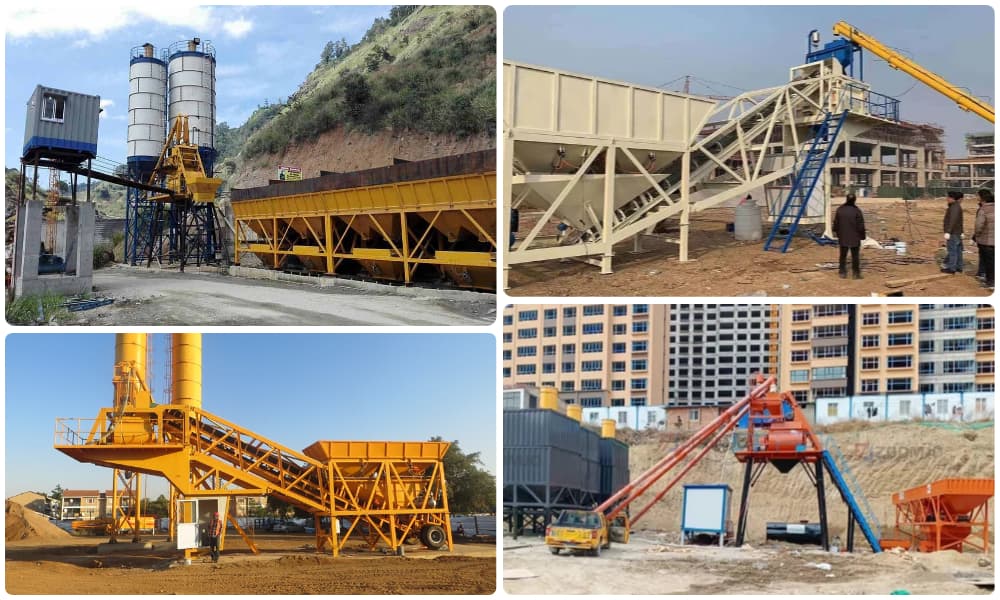
Compact Concrete Batching Plant Overview
Compact Concrete Batching Plant is an efficient equipment that integrates concrete batching and mixing. It integrates the various functional modules of a traditional concrete mixing plant into a compact space, which not only saves floor space but also improves productivity.
Compact concrete mixing plant is suitable for the production of various concrete types, including dry-hard, semi-dry-hard and plastic concrete, and is widely used in infrastructure construction, precast component manufacturing and other fields. As a new star in the construction industry, compact concrete mixing plants are gaining attention worldwide for their high efficiency and flexibility, especially in Ukraine, where infrastructure construction is developing rapidly.
Working Principle and Composition
The core components of the compact concrete mixing plant include:
-
Concrete Mixer: It is responsible for mixing the raw materials such as cement, aggregate, water, etc. to produce the concrete that meets the requirements.
-
Batching System: Weighs the raw materials accurately to ensure the accuracy of the concrete proportion.
-
Storage silo: store cement, aggregates and other raw materials for easy access.
-
Control system: automated control of the whole mixing process to improve production efficiency and product quality.
These components work in coordination through the advanced control system to ensure the continuous and efficient concrete production process.
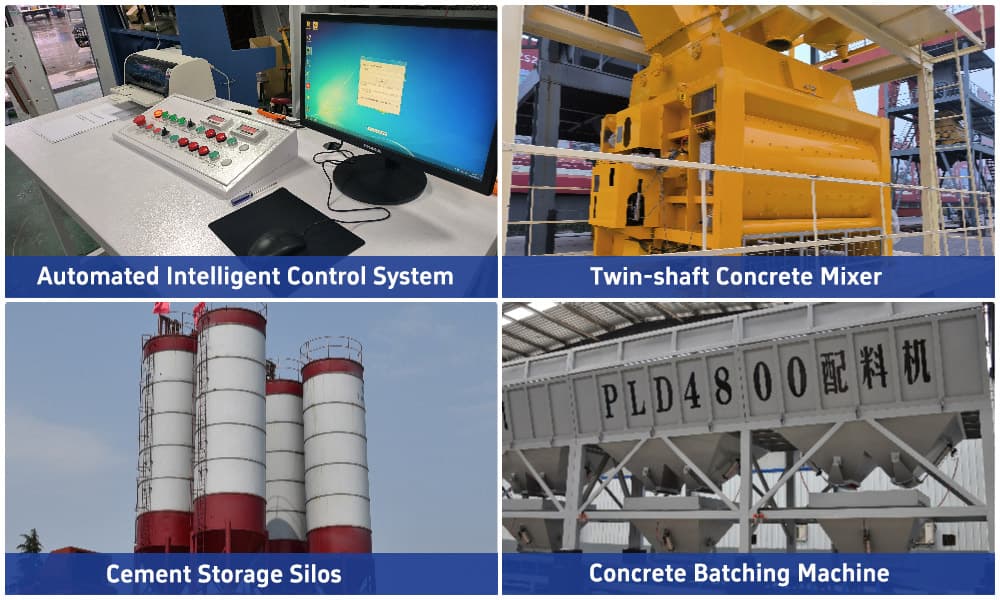
Types of Compact Concrete Batching Plants
| Type | Capacity (cubic metres per hour) | Applications |
|---|---|---|
| Mobile | 20-50 | Small to medium sized projects |
| Stationary | 35-90 | Medium to large projects |
Mobile and stationary concrete mixing plants each have unique characteristics and application scenarios, and are suitable for different sizes and types of projects.
Mobile Batching Plant
A mobile mixing plant is an integrated concrete production plant with a compact design for easy transport and quick installation. Its production capacity is usually in the range of 20 to 50 cubic metres per hour, making it suitable for small to medium-sized projects such as roads, bridges and temporary construction sites. Thanks to its mobility, the mobile mixing plant can be quickly transferred between different construction sites, reducing the time and costs involved in the concrete transport process, while ensuring freshness and quality. The simple installation and dismantling process of this equipment usually does not require complex infrastructure, making it suitable for the needs of projects with tight schedules.
Stationary Batching Plant
Stationary mixing plants are designed for medium to large-scale projects, with capacities typically ranging from 35 to 90 cubic metres per hour. They are usually installed in specific locations for long-term use and are widely used for large infrastructure projects such as dams, motorways and commercial buildings. Fixed mixing plants are more structurally sound and offer higher productivity and concrete quality, making them suitable for large-scale concrete production needs. Due to its flexible design, the stationary mixing plant can be customised to meet the specific requirements of the project, catering for different production needs and environmental conditions.
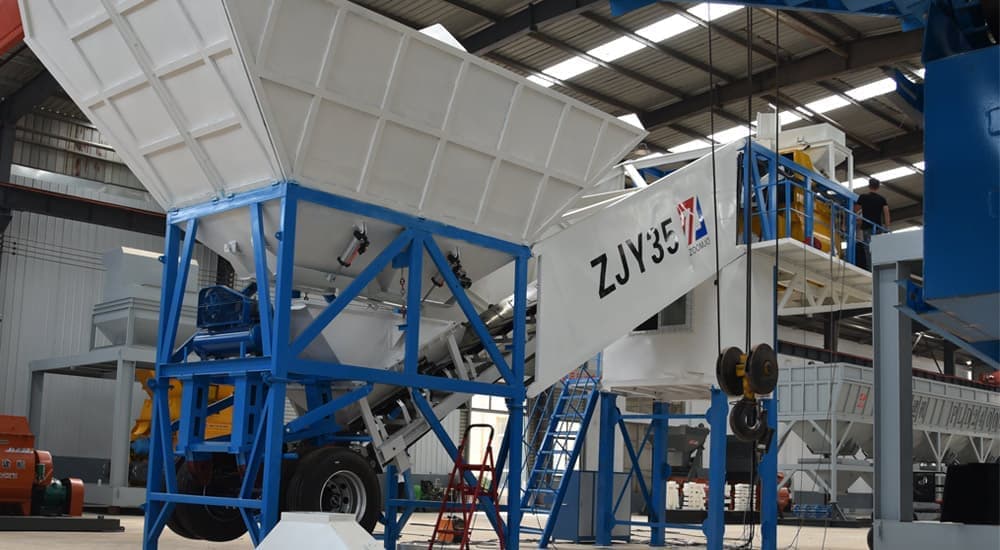
Advantages of Compact Batching Plants
The small design of compact concrete batching plants gives them excellent flexibility. Not only are they able to adapt to small construction sites and meet the needs of construction in densely populated areas, but their modular structure also makes installation, dismantling and handling much easier. This high degree of flexibility allows them to respond quickly to changing construction needs, especially for projects with tight schedules or complex construction environments.
With the intelligent automated control system, the Compact Concrete Batching Plant achieves accurate batching and efficient mixing, which greatly shortens the concrete production cycle and meets the high demand for construction speed in modern construction projects.
Compact concrete mixing plants are widely used in construction, infrastructure and municipal areas. They provide concrete support for projects such as residential buildings, commercial buildings, roads, bridges, tunnels and pipeline laying.
Key Features of Compact Concrete Batching Plants
Compact concrete mixing plants are ideal for the Ukrainian construction market due to a number of advantages. These advantages have been carefully designed to increase construction efficiency, adaptability and reliability.
-
Small footprint and flexible deployment: The compact design allows the plant to be deployed flexibly on small construction sites, especially in areas where land resources are tight in Ukraine's urbanisation process.
-
Mobility and adaptability: The equipment can be quickly disassembled, transported and flexibly deployed to meet the changing needs of the Ukrainian construction market.
-
High productivity and quality: Despite its compact size, the plant's productivity is not compromised, allowing it to consistently supply high-quality concrete to meet the demands of large-scale construction projects.
-
Intelligent control and easy operation: The advanced automated control system improves batching accuracy and reduces manual errors, increasing overall productivity.
-
Energy-saving and environmentally friendly, in line with the concept of sustainable development: the equipment adopts energy-saving design, reducing energy consumption, in line with Ukraine's growing emphasis on green building concept.
-
Rugged and durable: Made of high quality materials, the equipment ensures long-term stable operation under adverse working conditions, bringing long-term benefits to the enterprise.
The rapid development of infrastructure construction in Ukraine is increasing the demand for concrete. The immediate supply capacity of the small concrete mixing plant can meet the urgent demand of construction enterprises for quick start-up projects, which effectively promotes the prosperity of the Ukrainian construction market.
| Advantages | Impact |
|---|---|
| Space efficiency | Operates in limited urban space |
| Mobility and flexibility | Facilitates frequent relocation |
| Cost-effective | Reduces operating costs |
| Reduces installation time | Quick assembly and disassembly |
| Environmental considerations | Reduced dust and noise emissions |
Leading supplier of compact concrete mixing plants in Ukraine
In the Ukrainian market, some of the leading suppliers are known for their knowledge and ability to provide compact concrete mixing plants that are immediately available from stock. These suppliers play an important role in meeting the growing demand for efficient and reliable concrete mixing solutions in the region.
Key suppliers in the market
The table below lists the leading mixing plant manufacturers in the Ukraine market in detail, providing you with a comprehensive overview of the market.
| Supplier Name | Unique features |
|---|---|
| ZOOMJO | Various models can be customised to meet the needs of different projects. |
| Betonmash | Flexible layout design, can be customised according to site conditions, high production efficiency. |
| Elkon | Adopting advanced automation control system, the production process is efficient and precise, while focusing on energy saving. |
| Ammann Group | Rugged and quick to install, they are suitable for all kinds of harsh conditions and guarantee reliable operation over the long term. |
ZOOMJO
ZOOMJO is well known for its rich product line and high customisation capability. They offer a wide range of concrete mixing plant models, from small mobile to large stationary, to meet the needs of projects of different sizes and types. Customers can choose the right model and customise the configuration according to the specific conditions of their own site to achieve the best productivity and economic benefits.ZOOMJO's mixing plants are not only technologically advanced, but also designed with a focus on user-friendliness, easy to operate and easy to maintain.
Betonmash
Betonmash's concrete mixing plants are favoured for their flexible layout design and efficient production capacity. Adapting to a variety of complex and changing construction environments, their plants are designed to maximise the use of space and increase productivity through optimal layout design, and Betonmash's plants incorporate advanced mixing technology.It is capable of mixing various formulations of concrete quickly and homogeneously, ensuring consistent concrete quality.
Elkon
Elkon is a pioneer in automation technology in the concrete mixing plant industry. Their plants are equipped with advanced automation control systems that automate the entire process from batching to mixing, greatly improving production efficiency and precision. Elkon also focuses on energy saving, reducing production costs and environmental impact through optimal design and the use of highly efficient equipment.Elkon's mixing plants are widely recognised for their high level of automation and intelligence.
Ammann Group
Ammann Group's concrete mixing plants are recognised for their outstanding durability and reliability. Made from high-quality materials and advanced manufacturing processes, their plants are built to last for long periods of time in harsh conditions, and Ammann Group's mixing plants are quick to install and ready for use in the shortest possible time, meeting the needs of emergency construction. In addition, Ammann Group offers a comprehensive after-sales service to ensure that customers receive all-round technical support.
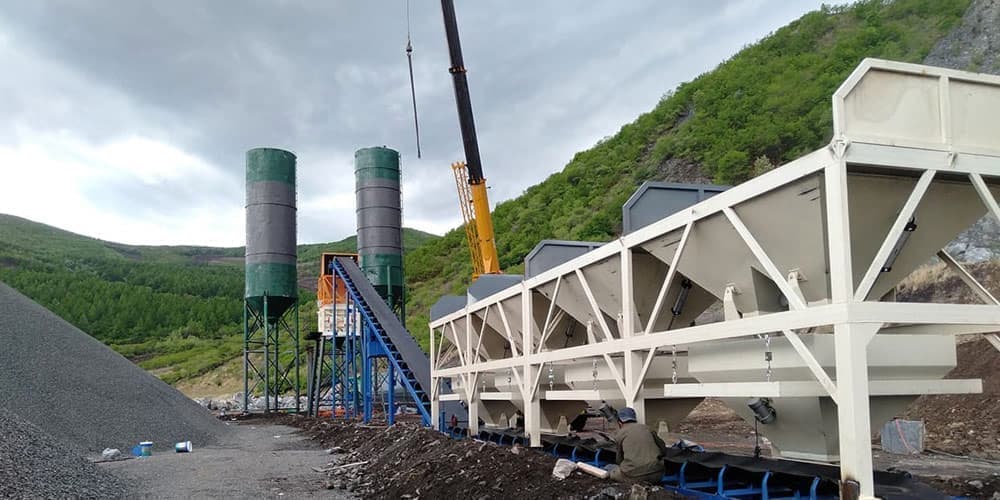
Considerations when choosing a supplier of small concrete mixing plants
When choosing a small concrete batching plant supplier, you should focus on the following aspects:
-
Enterprise strength: assess the supplier's industry experience, qualification certification and past performance to ensure that it has reliable production capacity and market reputation.
-
Product quality: Focus on the material, workmanship, performance and durability of the mixing plant to ensure that the selected equipment can meet the quality requirements of the project.
-
Customisation capability: Confirm whether the supplier can provide personalised solutions according to your specific needs to adapt to different construction environments and requirements.
-
Price and value for money: Compare product prices and value for money, and understand the different payment options to ensure you get the best value for money within your budget.
-
After-sales service: Examine the technical support, parts supply and maintenance services provided by the supplier to ensure that you can get timely help in the process of using the equipment.
In addition, you should also pay attention to the following points:
-
Delivery time: Confirm whether the supplier can deliver on time to meet the project schedule.
-
Environmental performance: Check whether the noise and dust emission of the equipment meets the environmental standards to ensure environmental friendliness during the construction process.
-
Safety performance: Ensure that the design of the equipment complies with safety standards to safeguard the safety of the operators.
Recommendation.
When choosing a supplier, you can take the following steps:
-
Multiple comparisons: Compare the products and services of different suppliers and choose the one that best suits your project needs.
-
Site visit: Visit the supplier's factory and installed equipment as far as possible to visualise their production capacity and product quality.
-
Consult industry experts: Listen to the advice of industry experts and get professional advice and guidance.
-
Sign a detailed contract: Ensure that the terms of the contract are clear, to protect your rights and interests and avoid possible subsequent disputes.
In short, choosing the right supplier is an important part of the success of your project, and considering the above factors will help you make a wise decision.
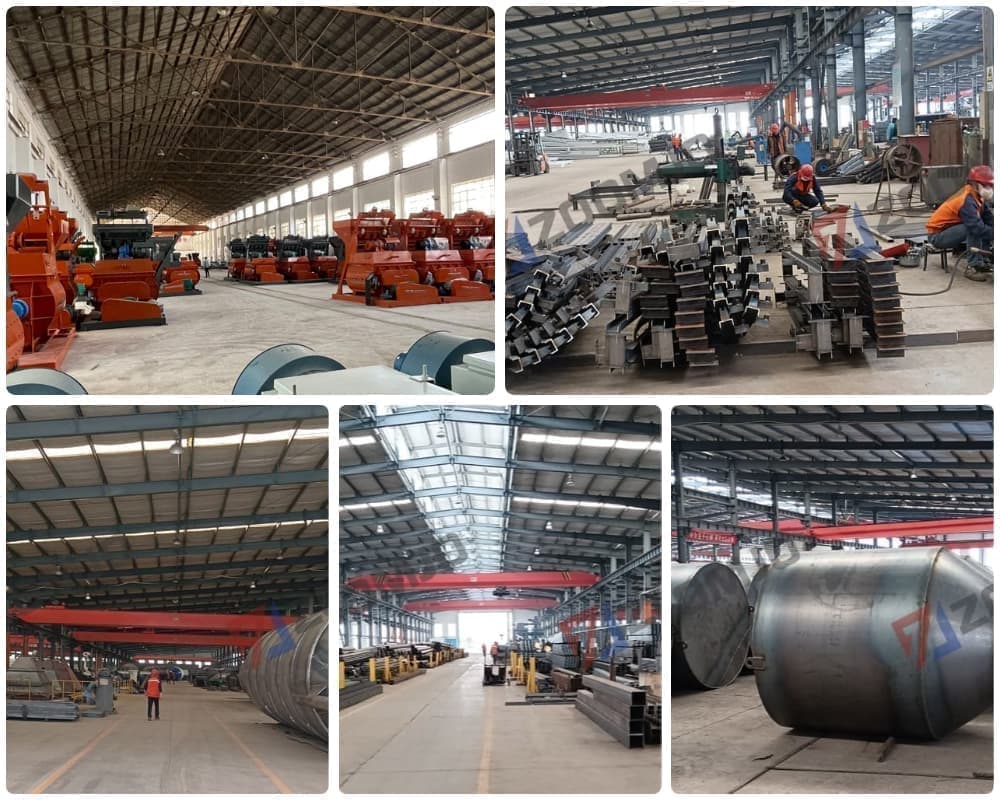
Price Considerations for Compact Concrete Batching Plants
When evaluating the cost of a portable concrete batching plant in the Ukrainian market, there are multiple factors that can significantly impact the overall investment and operating costs. Understanding these factors is critical to making an informed decision that meets budgetary constraints and project needs.
Initial purchase price
The initial purchase price of a compact concrete batching plant is an important part of the total cost. This price will vary depending on the production capacity, technical specifications and brand of the mixing plant. Usually, mixing plants with advanced features and high production capacity are more expensive. Therefore, it is essential to compare offers from different models and suppliers to find the best value for money.
Operating Costs
Operating costs cover a range of expenses incurred by a mixing plant over its lifetime, including:
-
Energy use: Compact concrete batching plants are often designed to be energy efficient, which helps to reduce electricity costs.
-
Labour costs: As these plants typically require fewer operators, labour costs are correspondingly lower.
-
Maintenance costs: Regular maintenance is key to ensuring efficient operation and a long service life of the plant.
Maintenance and spare parts
Regular maintenance is essential to ensure the longevity and efficiency of your small concrete mixing plant. Maintenance costs may vary depending on the availability of additional parts and the complexity of the mixing plant components. Choosing a supplier that offers comprehensive after-sales service and easy access to additional parts can effectively reduce downtime and maintenance costs.
Transport and installation costs
Transport and installation are additional costs to consider. Portable concrete mixing plants are often easier to transport and install due to their smaller size and modular design. However, these costs can still be considerable, especially if they need to be transported across borders or installed in difficult areas.
Cost Comparison Table
| Cost Factors | Detailed Information |
|---|---|
| Initial Purchase Price | Varies according to production capacity, technology and brand |
| Operating Costs | Includes energy, labour and maintenance costs |
| Maintenance and spare parts | Prices depend on availability and complexity of additional parts |
| Transport and installation | Affected by distance and site conditions |
Understanding these cost considerations is essential for stakeholders in the Ukrainian market to make informed decisions when purchasing a small concrete batching plant. By thoroughly evaluating each cost variable, companies can optimise their investment and achieve efficient and cost-effective operations.
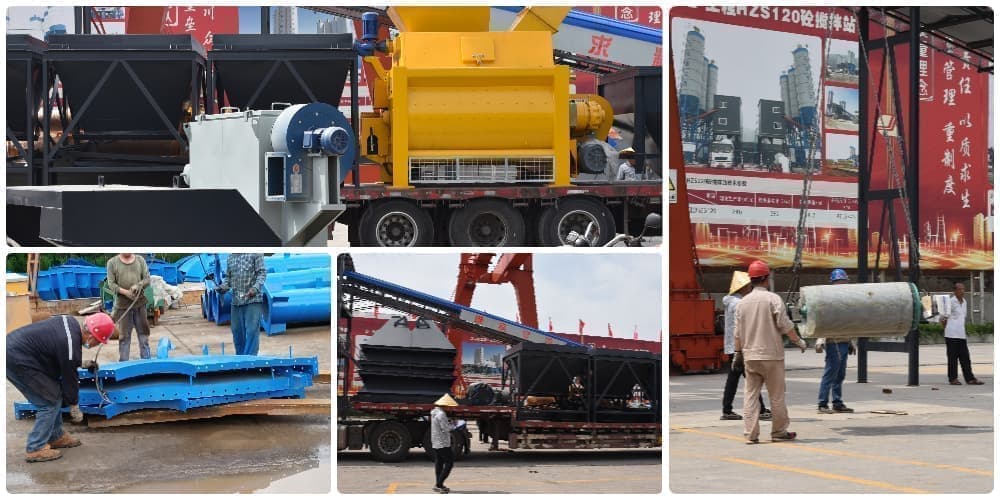
Installation and Maintenance of Compact Concrete Batching Plants
Installation process
Installing a compact concrete batching plant in the Ukrainian market involves several important steps to ensure optimal efficiency and durability. Firstly, an ideal location that is easily accessible needs to be selected, ensuring that the site can provide access to basic materials and transport. It is vital to ensure that the site level is stable to support the framework and operation of the mixing plant.
Once the location has been identified, the foundation is laid in accordance with the manufacturer's requirements. This step is important because it provides the necessary support for the components of the mixing plant. After the foundation work is complete, the main structure of the mixing plant is constructed, including the mixer, aggregate tank and control system. Each part must be securely fastened and aligned to prevent functional problems.
Commissioning and testing
Once assembled, the mixing plant will go through a commissioning process to verify that all systems are functioning properly. This phase includes checking electrical connections, control systems and mechanical processes to ensure they meet safety and performance standards. Dry run tests are conducted and adjustments are made using concrete sets to ensure the output of the mixing plant is as expected and settings are adjusted as needed.
Regular Maintenance
Maintaining your compact concrete mixing plant is critical to keeping it performing and extending its life. Routine maintenance procedures should be established, focusing on key areas such as the mixer, conveyor belt and control system. Regular inspections should focus on wear and tear to ensure that all moving parts are lubricated and operating effectively.
Equally important is the continuous monitoring of the quality of the mixing plant's output. Any deviations in the consistency or strength of the concrete must be addressed immediately, which may indicate the need for replacement parts or repairs. Keeping a detailed maintenance log will help track the performance of the mixing plant and identify recurring issues that may require a more thorough inspection.
Additional Parts and Support
Having access to extra parts in the event of a part failure is critical to minimising downtime. Vendors often provide an inventory list of critical extra parts. Additionally, establishing a relationship with a reliable distributor ensures that necessary parts and technical support are quickly available when needed.
Technical support is an important resource for dealing with complex issues that may arise during the operation of a mixing plant. Many distributors offer training courses for operators and maintenance teams to equip them with the knowledge to handle routine maintenance and minor repairs independently.
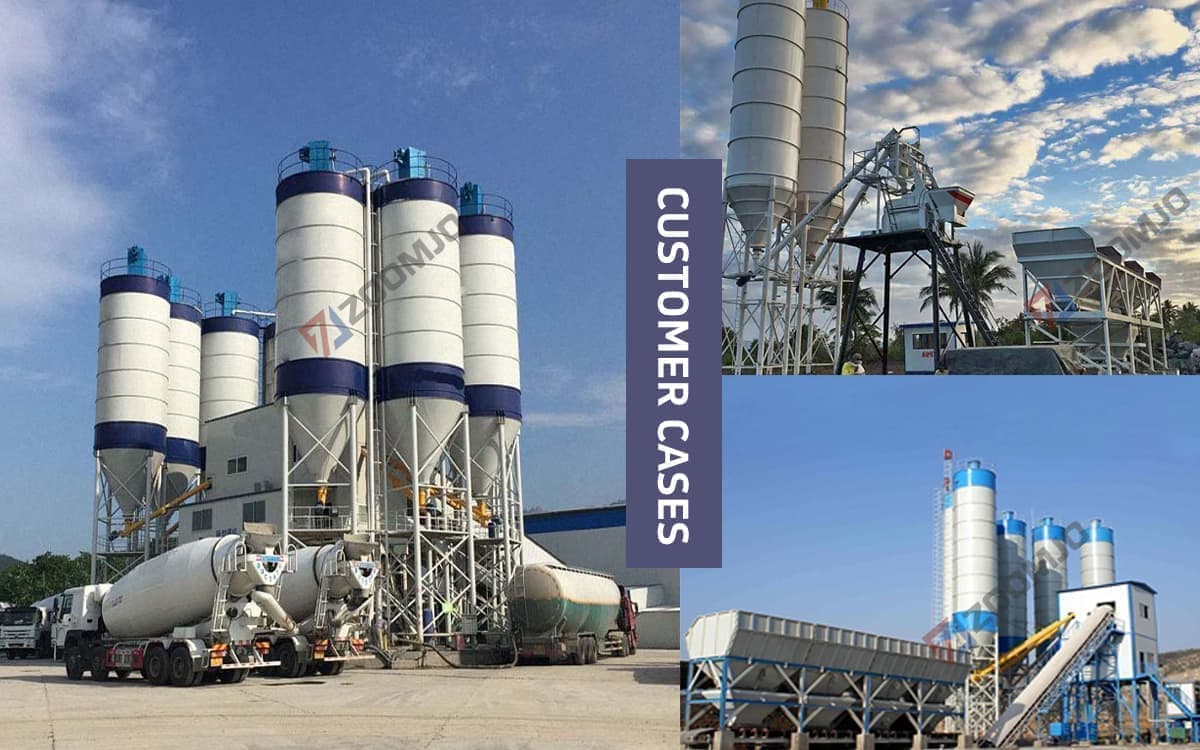
Frequently asked questions about compact concrete batching plants on the Ukrainian market
Q: What is a Compact Concrete Batching Plant?
A: Compact Concrete Batching Plants are specialised facilities designed for efficient concrete production. They integrate basic components such as mixers, aggregate bins and control systems into one compact unit, making them ideal for urban and semi-urban construction projects.
Q: How do Compact Concrete Batching Plants work?
A: Compact Concrete Batching Plants work by mixing various raw materials such as cement, sand, aggregates and admixtures in preset proportions. Firstly, the raw materials are transported to the mixer, where they are accurately measured and mixed by a control system. A rotating device inside the mixer ensures a homogeneous mix, which ultimately produces the desired concrete. The entire process is highly automated and easy to operate, making it suitable for a wide range of construction projects.
Q: What are the advantages of Compact Concrete Mixing Plant available in stock?
A: In-stock supply of these mixing plants ensures instant access to essential equipment, reduces lead times and allows construction projects to start without delay, which is crucial in the fast-paced Ukrainian construction industry.
Q: How can I assess the capacity of a Compact Concrete Batching Plant?
A: Evaluating the production capacity of a Compact Concrete Batching Plant (CCPBP) requires taking into account a number of factors such as mixer capacity, mixing cycle, working hours, material mixing ratios and logistics efficiency. By comprehensively analysing these factors, companies can more accurately predict the actual production capacity of the plant and thus optimise production planning and resource allocation.
Q: What factors should I consider when choosing a supplier of compact concrete mixing plants in Ukraine?
A: Key factors include the supplier's reputation, availability of technical support, customisation options and competitive pricing. These factors ensure that you get a reliable and cost-effective solution for your project.
Q: What factors influence the selection of a compact concrete batching plant?
A: When selecting a Compact Concrete Batching Plant, users should consider a number of aspects such as project requirements, site conditions, environmental factors, cost and technology level. A comprehensive evaluation of these factors will help to select the most suitable plant, thereby improving construction efficiency and concrete quality.
Q: What are the cost considerations for investing in a compact concrete batching plant?
A: Cost considerations include the initial purchase price, operating costs (e.g. energy and labour), maintenance costs, and transportation and installation costs. Analysing these factors can help optimise investment and operational efficiency.
Q: What are the advantages of a Compact Concrete Batching Plant over a conventional plant?
A: Compact plants are superior to conventional plants in terms of space utilisation, mobility, ease of installation, productivity, cost-effectiveness and automation. These advantages make the compact plant an increasingly popular choice for modern construction projects, especially when flexibility is required to cope with different construction environments.

 English
English  Español
Español  简体中文
简体中文  Pусский
Pусский  українська
українська 
